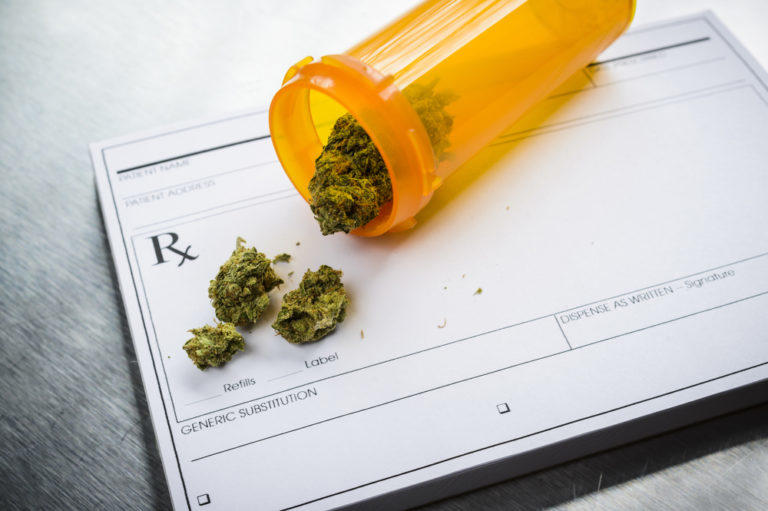
Section Branding
Header Content
Card-Carrying Low THC Oil Patients Have Waited Years To Wait One More
Primary Content

Patients on Georgia’s Low THC Oil Registry are anxiously awaiting an announcement from the Georgia Access to Medical Cannabis Commission to award production licenses so selected growers can begin cultivating cannabis.
The commission recently announced it will hold its first public meeting of the year on Wednesday. Applicants said they are hopeful the awarding of production licenses is imminent. For patients, that milestone would mark the beginning of another lengthy waiting period.
Sebastian Cotte’s 10-year-old son, Jagger, is registered to use the oil for symptoms associated with a severe neurological disorder called Leigh’s disease. The prognosis for Jagger’s illness is grim, but he has outlived doctor’s expectations by many years. His father says THC oil enabled Jagger to wean off painkillers like morphine and oxycodone, and credited cannabis with helping to keep his son alive.
“Best case scenario right now — best, best case scenario — I’m looking at July 2022 before I can buy the product that I need for my son in Georgia, and I can stop breaking the law by going out of state to get the stuff I need,” Cotte said.
Cotte helped create an advocacy group called Georgia’s Hope in 2014 to lobby for the legalization of medicinal THC.
Patients have been waiting for Georgia to establish its medical cannabis industry since the Legislature passed and then-governor Nathan Deal signed Haleigh’s Hope Act in 2015. Patients or their guardians who are approved by their physician with one of 17 qualifying conditions and registered with the state receive a card which allows them to possess up to 20 fluid ounces of low THC oil, but they still have nowhere to legally purchase this oil in the state.
This year, Cotte renewed Jagger’s THC Oil Registry card for the third time, without ever having used it to purchase oil within the state. He said his son was one of the first five patients registered in 2015, and cards expire every two years. For now, the card’s only function is to permit the administration of oil if Jagger is in the hospital. Cotte said he regularly travels out of state to get medicine for his son.
“It’s already hard enough to be a parent of a terminally ill kid,” Cotte said. “To watch your kid on hospice, knowing that they could only have so much time left to live.”
Cotte also helps parents of patients by gifting some of the THC oil he purchases from states where cannabis is legal. There is a limited supply, and parents may only receive a bottle each month, even if their child needs more. Some offer to pay for it, but Cotte won’t allow it; the second oil is paid for, it becomes illegal.
Joshua Littrell is the CEO of Veterans for Cannabis, and part of a group that has applied for one of the production licenses. He is in contact with a network of veteran patients who are desperate for the medicine and an updated timeline for its production.
Littrel said the most frustrating part about the process is the lack of communication from the commission. He gets dozens of calls and emails a day from veterans asking when the grow permits will be awarded.
“The longer the state pushes it off, the more 12 months out it goes for the patients who have been waiting for seven years now,” he said.
But Littrell is hopeful that the state will issue licenses within the next month.
“The commission and (Executive) Director (Andrew) Turnage all understand that the patients are the ones that are losing, and they want to see this happen as quickly as possible,” he said.
Cotte can attest to the fact that parents and patients have experienced loss in the time spent waiting.
“We lost kids in our group of parents,” he said. “(I’m) not saying they’d still be alive if cannabis was available, but maybe they would have a longer life. It’s hard to tell, obviously, but we have kids and patients that passed away waiting for this, and that’s just shameful.”
This story comes to GPB through a reporting partnership with Fresh Take Georgia.

